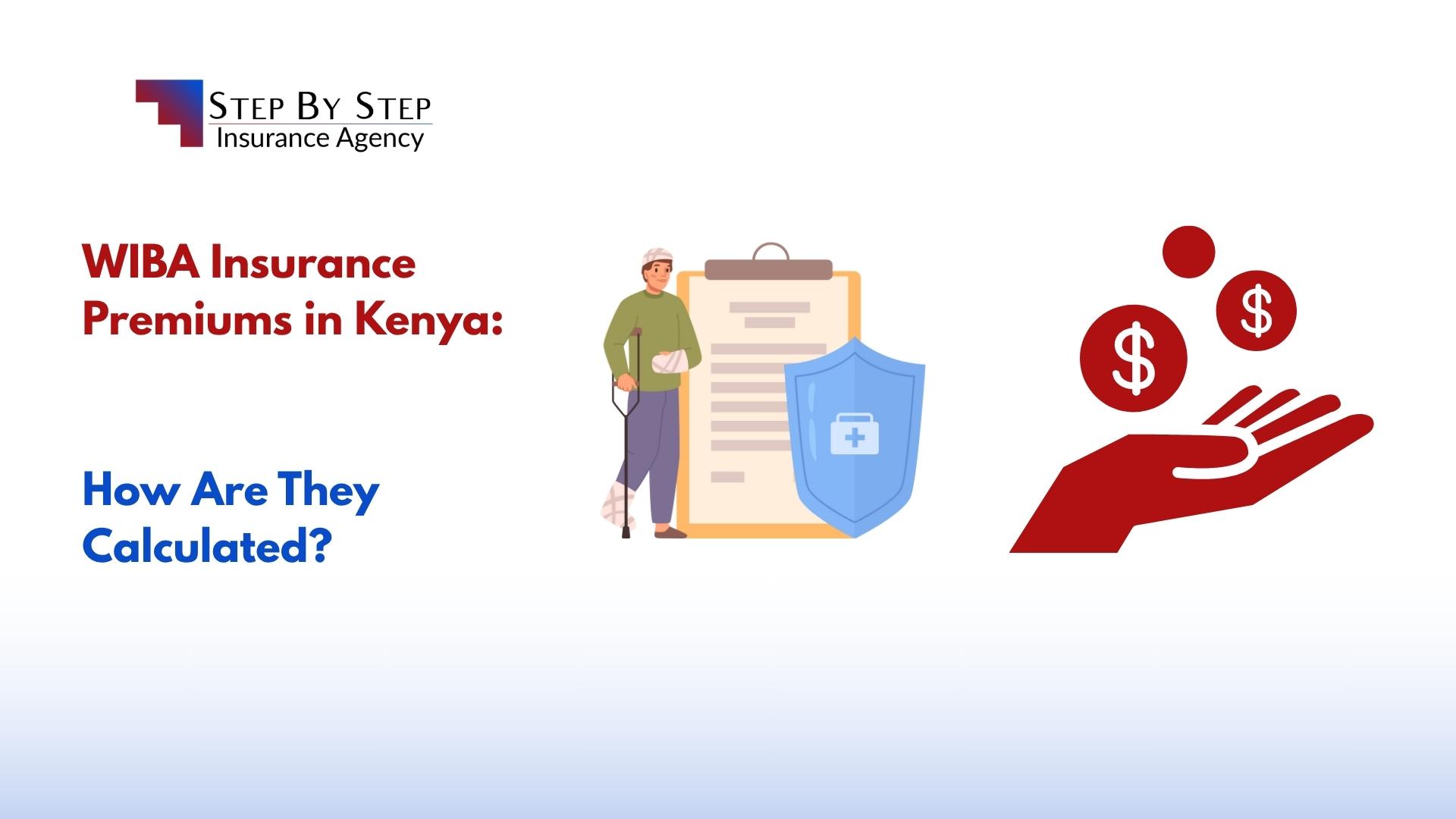WIBA Insurance in Kenya: Top 10 Things you Should Know in 2025
In Kenya, the Work Injury Benefits Act (WIBA) is a crucial piece of legislation designed to protect employees from the financial repercussions of work-related injuries and illnesses. Understanding WIBA insurance is essential for both employers and employees to ensure compliance with the law and to safeguard against potential risks.
This article outlines the top ten things you should know about WIBA insurance in Kenya, providing comprehensive insights that can help businesses navigate this important aspect of employee welfare.
1. What is WIBA Insurance?
WIBA insurance, or Work Injury Benefits Act insurance, is a mandatory coverage required by law for all employers in Kenya. It provides compensation to employees who suffer injuries or illnesses while performing their duties. The Act aims to ensure that workers receive necessary financial support without having to prove fault, as it operates on a no-fault basis.
2. Who is Covered Under WIBA Insurance?
WIBA insurance covers all employees engaged under a contract of service within Kenya. This includes permanent, temporary, and casual workers. The coverage extends to employees deployed abroad for a maximum of 12 months, ensuring that all workers are protected regardless of their employment status or location.
3. Key Benefits of WIBA Insurance
WIBA insurance offers several critical benefits designed to protect employees and their families:
- Medical Expenses: Covers reasonable medical costs incurred due to workplace injuries, including hospitalization and rehabilitation.
- Temporary Total Disability: Provides compensation for lost wages if an employee is unable to work due to injury for more than three days, extending up to 52 weeks.
- Permanent Total Disability: Offers compensation equivalent to eight years’ salary if an employee becomes permanently disabled.
- Death Benefits: In the event of an employee’s death due to a work-related incident, beneficiaries receive compensation equivalent to eight years’ salary.
- Funeral Expenses: Covers funeral costs up to a specified limit, ensuring that families are not burdened with these expenses during difficult times.
4. How is WIBA Insurance Calculated?
The cost of WIBA insurance premiums is calculated based on several factors:
- Gross Annual Salaries: The total salaries paid to employees directly influence the premium amount.
- Nature of Employment: The risk associated with different job roles affects the premium; higher-risk jobs may incur higher costs.
- Industry Type: Certain industries are considered more hazardous than others, which can also impact premium rates.
Employers should provide accurate information regarding these factors when applying for WIBA insurance to ensure they receive appropriate coverage at a fair price.
5. Legal Requirements for Employers
Under the WIBA Act of 2007, all employers are legally obligated to obtain WIBA insurance for their employees. Failure to comply can result in penalties and legal repercussions. Employers must also report any workplace injuries or illnesses within seven days to their insurance provider, ensuring that claims can be processed efficiently.
6. What Does WIBA Insurance Not Cover?
While WIBA insurance provides extensive coverage, there are specific exclusions that employers should be aware of:
- Claims arising from self-inflicted injuries or suicide.
- Injuries sustained while under the influence of drugs or alcohol.
- Accidents occurring during professional sports or activities like mountaineering.
- Claims related to nuclear energy risks or exposure to asbestos.
Understanding these exclusions helps employers manage expectations and ensures compliance with the law.
7. The Claims Process Under WIBA Insurance
The claims process for WIBA insurance involves several steps:
- Reporting: Employees must report any work-related injury or illness to their employer as soon as possible.
- Employer Notification: Employers are required to notify their insurance provider within seven days of the incident.
- Claim Submission: Employees can file a claim with their insurer within 12 months from the date of the accident.
- Assessment: The insurer will assess the claim based on medical reports and other relevant documentation before approving compensation.
By following these steps diligently, both employers and employees can ensure a smooth claims process and timely compensation.
8. Importance of Compliance with WIBA Insurance
Compliance with WIBA insurance not only protects employees but also shields employers from potential legal liabilities arising from workplace accidents. By adhering to legal requirements, businesses can foster a safer working environment and enhance employee morale and productivity.
Additionally, compliance can improve a company’s reputation as a responsible employer, making it easier to attract and retain talent in a competitive job market.
9. Choosing the Right WIBA Insurance Provider
Selecting the right insurance provider is crucial for effective coverage under WIBA. Employers should consider factors such as:
- Reputation: Researching insurers’ track records in handling claims and customer service can provide insights into their reliability.
- Coverage Options: Different insurers may offer varying levels of coverage; it’s essential to compare policies thoroughly.
- Customer Support: A responsive customer support team can make a significant difference in managing claims efficiently.
Some well-known providers of WIBA insurance in Kenya include Jubilee Insurance, Britam Insurance, CIC Insurance, and UAP Old Mutual Insurance among others.
10. Future Trends in WIBA Insurance
As workplace dynamics evolve, so too does the landscape of WIBA insurance in Kenya. Key trends include:
- Increased Focus on Occupational Health: With rising awareness about mental health and workplace safety, insurers may begin offering more comprehensive coverage options that address these concerns.
- Digital Transformation: The integration of technology in managing policies and claims processing is likely to enhance efficiency and accessibility for both employers and employees.
- Customized Solutions: Insurers may develop tailored policies that cater specifically to high-risk industries or unique business needs, providing better protection for vulnerable workers.
Read Also
For further insights into WIBA insurance in Kenya, check out these articles:
- WIBA Insurance Benefits in Kenya: A Comprehensive Guide – This article provides an extensive overview of the various benefits offered by WIBA insurance for employees in Kenya.
- WIBA Insurance Coverage Details in Kenya – Learn about what specific aspects are covered under WIBA insurance policies in this detailed article.
Conclusion
Understanding WIBA insurance is essential for both employers and employees in Kenya. By being aware of its benefits, legal requirements, exclusions, and claims processes, businesses can better protect their workforce while ensuring compliance with local laws.
Investing in adequate WIBA coverage not only safeguards employees but also contributes positively to organizational culture and productivity. As workplaces continue evolving, staying informed about trends in WIBA insurance will be vital for maintaining employee welfare and operational success in Kenya’s competitive environment.





